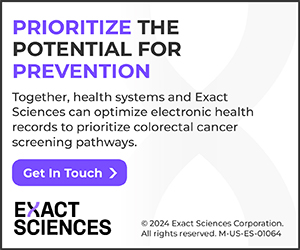
- Solutions to the Nursing Shortage
- Connect With Your Community
- Members in the News
- Digital Self-Study Courses
- Healthcare Consultants at Your Fingertips
- Help Shape Our Policy Statements
Solutions to the Nursing Shortage
While solutions vary depending on the size and type of the facility, Diane Smith, RN, consultant with Witt Kieffer, sees some good news on the horizon in addressing the current nursing shortage.
“A lot of nurse executives are focusing on recruitment, retention and now adding in resilience,” she says. Hospitals are starting to grow their own nursing staff internally through creative recruitment to hire full-time staff and retention strategies that nurture relationships with current nurses.
Therese Fitzpatrick, PhD, senior vice president at Kaufman Hall, agrees with Smith, saying she is also starting to see modest improvement. She cites innovative thinking as part of the solution. Besides flexible scheduling, hospitals have better defined career paths and invested in robust career development for nurses so that, “from day one, a nurse understands where her next position is … and she understands what skills she’ll be developing to be ready for that next position,” says Fitzpatrick.
To read about other creative solutions, check out Healthcare Executive’s May/June issue cover story, “The Nursing Shortage: Beyond the Bandage.”
Connect With Your Community
In honor of Pride Month, ACHE highlights the benefits of connecting with your community. The LGBTQ+ Healthcare Leaders Community—a private, members-only LinkedIn group—provides a way for direct peer-to-peer networking, in real time, along with the opportunity to ask questions and share resources.
Members have access to on-demand, timely and relevant webinars, as well as the Executive Diversity Career Navigator—a robust resource designed for diverse leaders to navigate their healthcare management careers.
Visit ACHE’s LGBTQ+ Healthcare Leaders Community page to learn more.
Members in the News
Jeremy Bradshaw, FACHE, has been named market president for CommonSpririt, Greater Salt Lake. Visit ACHE Members in the News to read more about your peers making headlines.
Digital Self-Study Courses
Develop the leadership and management skills you need to advance your career through ACHE’s Self-Study Courses—now in digital format. ACHE’s library of digital courses allows you the freedom of independent study, setting your own pace while discovering a range of topics.
After registering, you’ll receive instructions and course materials on how to complete the training, including required readings, an assessment and a course evaluation. Completing each course earns you six ACHE Qualifying Education credits that can be applied toward ACHE advancement or recertification.
Courses explore timely topics covering a range of healthcare management fundamentals. Email questions to selfstudy@ache.org.
Healthcare Consultants at Your Fingertips
If your organization is seeking an external professional opinion, ACHE has compiled the Healthcare Consultants Forum Directory–an exclusive list of ACHE members who offer advisory services.
These subject matter experts are members of ACHE’s Healthcare Consultants Forum—a growing platform of consultants offering advice on general healthcare leadership issues, as well as specialized topics, including interim management, short-term financing, strategic business planning, acquisitions/mergers, data warehousing and more.
These advisors can be contacted directly about their services. To learn more about the Forum, please contact ACHE Customer Service at (312) 424-9400 or email contact@ache.org. ACHE does not endorse the firms or individuals listed in the directory.
Help Shape Our Policy Statements
Members who want to provide feedback on seven of ACHE’s Policy Statements, the Code of Ethics and the Statement on Diversity should email them to the policy review team by June 28.
Each year, ACHE reviews select Policy Statements to ensure their continued relevance to the field. Under review this year are the following:
- Adopting a Systematic Approach to Bringing Healthcare Executives Into a New Position or Organization
- Appropriate Preparation for Healthcare Executive Management Positions for All New Entrants to the Field
- Decisions Near the End of Life
- Organ/Tissue/Blood/Blood Stem Cells Donation Process
- Responsibility for Mentoring
- The Role of the Healthcare Executive of a Nonprofit Entity in a Change in Organizational Ownership or Control
- Strengthening Healthcare Employment Opportunities for Persons with Disabilities
Members may also review the Code of Ethics and ACHE’s Statement on Diversity. The Board of Governors will discuss these statements and any recommended revisions during its December meeting. The revised statements will be posted online in early 2025.

